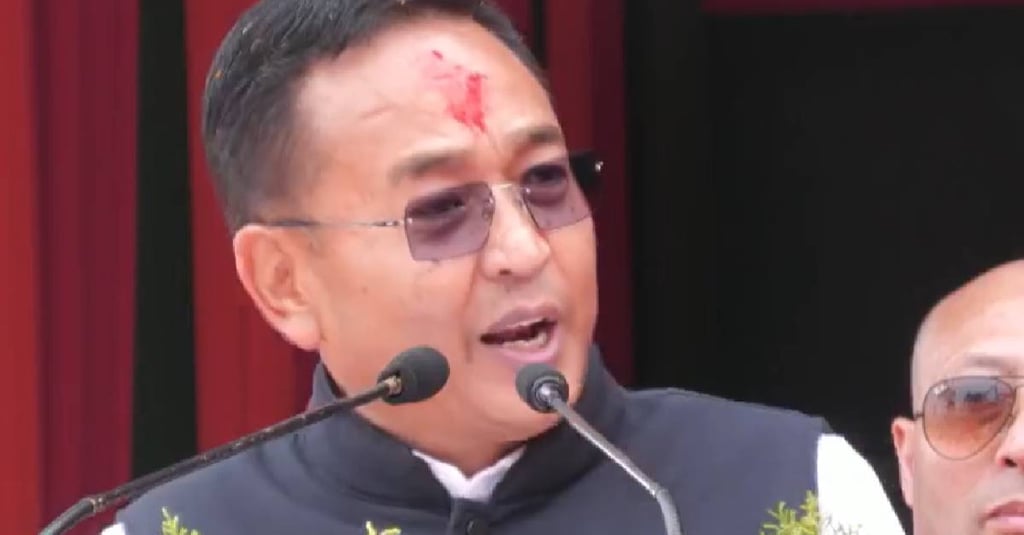CM Tamang dismisses Darjeeling-Sikkim merger talks, says Article 371F safeguards Sikkim's rights
Along with addressing the merger issue, CM Tamang also focused on the government’s efforts to secure tribal status for 12 communities in Sikkim that have been left out of the recognition so far.
LOCAL


Sikkim Chief Minister PS Tamang has strongly rejected any discussions around the merger of Sikkim and Darjeeling, stating that the matter is a "non-issue" and said that Article 371F of the Indian Constitution protects Sikkim's distinct status.
Speaking during the 13th Foundation Day celebrations of the Sikkim Krantikari Morcha (SKM) at Pacheykhani, CM Tamang urged the public not to be swayed by misleading narratives and added that Sikkim's special rights under the Constitution are non-negotiable. He pointed out that there are certain groups trying to stir up confusion on the subject. "There are people instigating this issue. This is a non-issue. The Constitution of India protects Sikkim, and no such merger can take place," said Tamang. "We are open for debate, but I urge everyone not to misguide the innocent people of Sikkim," he added.
Along with addressing the merger issue, CM Tamang also focused on the government’s efforts to secure tribal status for 12 communities in Sikkim that have been left out of the recognition so far. A high-level committee has been established to actively push for the recognition of these communities. On February 10, representatives from these groups will meet at the Old Sikkim House in Delhi to discuss further steps toward achieving this goal.
Criticizing the opposition, the Chief Minister accused them of obstructing the process for political gains. "The so-called opposition does not want the 12 communities to get tribal status. But we will make this happen," he declared. Tamang reiterated that the recognition of these communities as tribals is a key priority for his government. "Sikkim will be a tribal state, but some people are opposing this as they don’t want the left-out communities to become tribal," he said.
